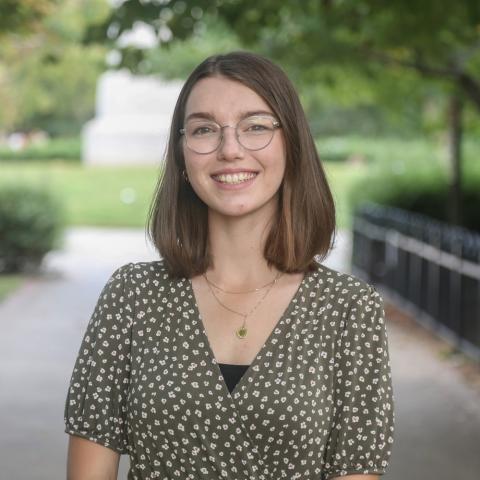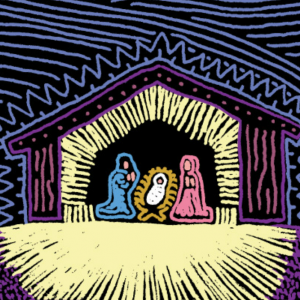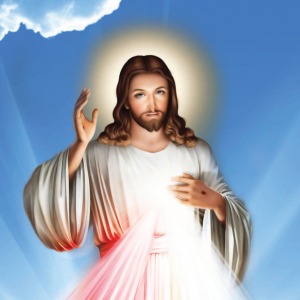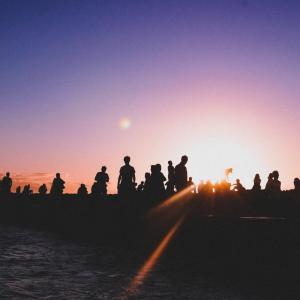
Olivia Bardo is a poet and baker of bread. She was born and raised along the fringes of the Appalachian Mountains in northeastern Pennsylvania, instilling in her a love for painting and storytelling. Olivia studied English, politics, and gender studies at Messiah University and had the opportunity to study abroad at Oxford University. Her senior thesis investigated the intersections of self-advocacy and poetic voice within early 20th century women’s magazines.
Olivia served as editor-in-chief of her campus literary journal and as a student fellow in the Center for Public Humanities, a humanities-based social justice initiative. During her time with the center, Olivia advocated for voting rights and researched the rich history of Harrisburg, Penn., and its residents. She also volunteered at Poetry-in-Place workshops, assisting middle school students as they composed poems. She realized her calling to pursue social justice through reading the works of Edwidge Danticat.
Olivia learned of Sojourners through many thoughtful conversations with professors and community leaders dedicated to the common good. In joining Sojourners, Olivia is thrilled to continue carrying out conversations and action that lead to social change.
In her spare time, you may find Olivia with a cup of tea visiting art museums, wandering poetry stacks, and foraging fields of blueberries and wildflowers.
Posts By This Author
‘Don't Look Up’ Shows Us How (Not) To Pray
In the new apocalyptic movie, religious expression reveals what really matters to people when the world is ending. As a planet-killing comet comes hurtling toward Earth, some characters, like Kate Dibiasky (Jennifer Lawrence), a Ph.D candidate studying astronomy at Michigan State, and her professor, Randall Mindy (Leonardo DiCaprio) take action; others turn toward denial. But all of them, at some point in the movie, pray. How they pray on their final days on Earth says a lot about what they value.
What We Read When the Earth Shakes
Novelist Edwidge Danticat expressed a similar sentiment in Create Dangerously, her 2010 memoir about making art in exile. Reflecting on the aftermath of the earthquake that had struck her home country of Haiti that year, she wrote, “I did what I always do when my own words fail me. I read.” We share this human practice of story sharing and story seeking. Danticat writes of her “desire to tell some of [her] stories in a collaged manner, to merge [her] own narratives with the oral and written narratives of others.” Through the transformative power of creating and remembering, we connect to the threads of humanity, discovering the woven patterns that are formed through our stories.
24 Christmas Quotes About Faith and Justice
At its core, the Christmas story is radical. Christ enters the world in the form of a marginalized infant — a story about finding hope amid brokenness by pushing forward into the darkness. We cannot find the true light of Christmas without understanding what it means to be in the dark, opening our eyes to the injustices in our neighborhoods.
The ‘Yassification’ of Christ
“Yassification” is a recent meme spreading across social media. To “yassify” something is to heavily edit the original image with multiple filters until the figure is blurred, airbrushed, and entirely unrecognizable. Many of these images come from Twitter user “@YassifyBot,” who primarily yassifies famous paintings, actors, and politicians. Religious leaders, however, are not immune from yassification: Pope Francis, Martin Luther, and Joan of Arc have all been yassified. Anyone can be yassified these days — even Jesus.
24 Quotes on Giving Thanks, Justice, and Radical Gratitude
Gratitude is far more radical than slapping a #blessed hashtag on a social media post. When we give thanks, we are invited to build a beloved community that aligns with our enduring moral values of justice, peace, and love for our neighbors.




